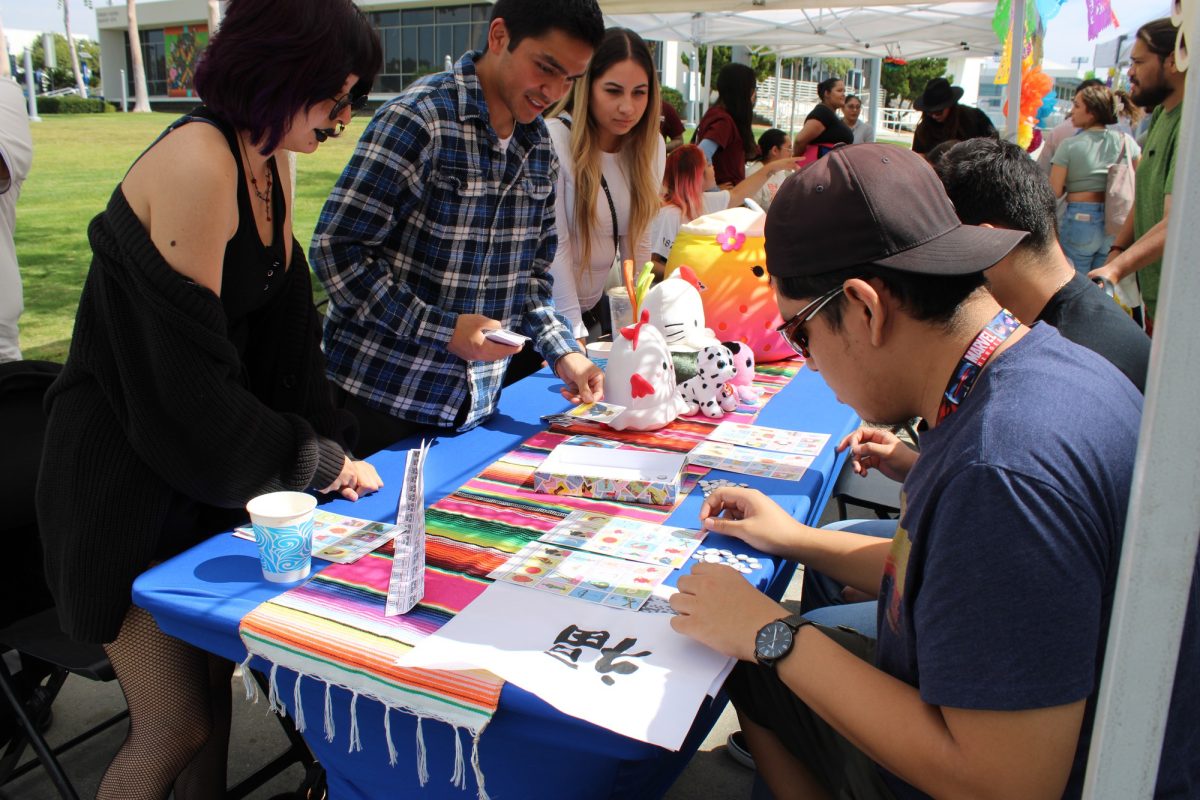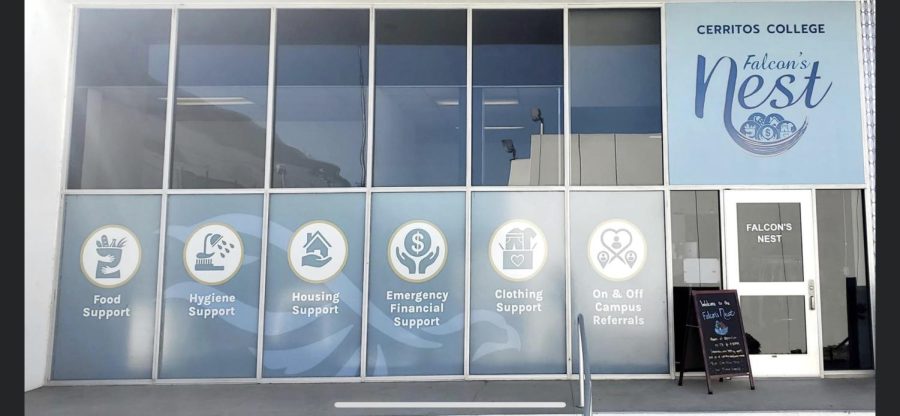For Cerritos College Marine veteran, Jacob Linarez, his two dogs Bella and Cookie are more than just his best friends, they’re certified service dogs with whom he can rely on to get him out of inadequate situations.
If a military veteran is hindered with a disability, physically and/or mentally, after his or her tenure with the military, a service dog is a viable option for aid and support.
According to the U.S. Department of Veterans Affairs’ website, a service dog “is a dog trained to do specific tasks for a person that he or she cannot do because of a disability.”
The website stresses that although owning a regular dog can help tremendously with post traumatic stress disorder (PTSD), having a certified trained service dog has a plethora of more benefits.
Linarez’s dogs, for example, are expertly trained with different defense mechanisms that help him identify triggers he normally wouldn’t notice.
“If we’re in a crowded area and I start to get real tensed and real anxious,” Linarez begins, “the service dog picks up on that and she’ll alert me to get her attention to focus on her and that’ll calm me down.”
Linarez classifies his dogs as emotional support dogs and admits that they also help him cope with anger issues he may get from time to time.
Director of Diversity, Compliance, Valyncia Raphael, is at the forefront of disability and accommodations at Cerritos College, and is highly knowledgeable regarding service dogs, including requirements.
She says that a service dog can be any breed of dog and of any size so long as it performs an active task.
A task that helps make the individual’s life much easier with the help of the dog.
Unfortunately, she does admit that service dogs used primarily for emotional support do not count as service animals at Cerritos College.
But there are ways around this.
According to Raphael, if a student has been diagnosed with certain ailments such as anxiety, a service dog skilled with supporting someone emotionally is okay to be on duty around Cerritos College.
She also emphasizes proper etiquette when encountering a service dog on campus.
She mentions that the government says legally it is OK to ask someone with a service dog only one of two questions.
“Is the animal related to a disability?”
“what work or task is the animal supposed to perform?”
Any other question is considered illegal.
Petting is discouraged when encountering a service dog, especially if the animal is on duty.
If someone does not know what to do when locating a service dog, it is recommended to just leave the animal and act like it is not there.
Military personal and common civilians with disabilities alike are encouraged to seek the help of a service dog if certain tasks are becoming complicated.
They enhance lives and can provide not only with emotional support, but actual duties.
Duties that can make a difference in a person’s daily life.
If more information is needed regarding service dogs for the disabled on campus, the Human Resource Department located in the Multipurpose Building can provide answers to all questions.
Linarez also advises if a military veteran is interested in obtaining his or her own service dog, to check out the non-profit organization 4 Paws 4 Patriots.








